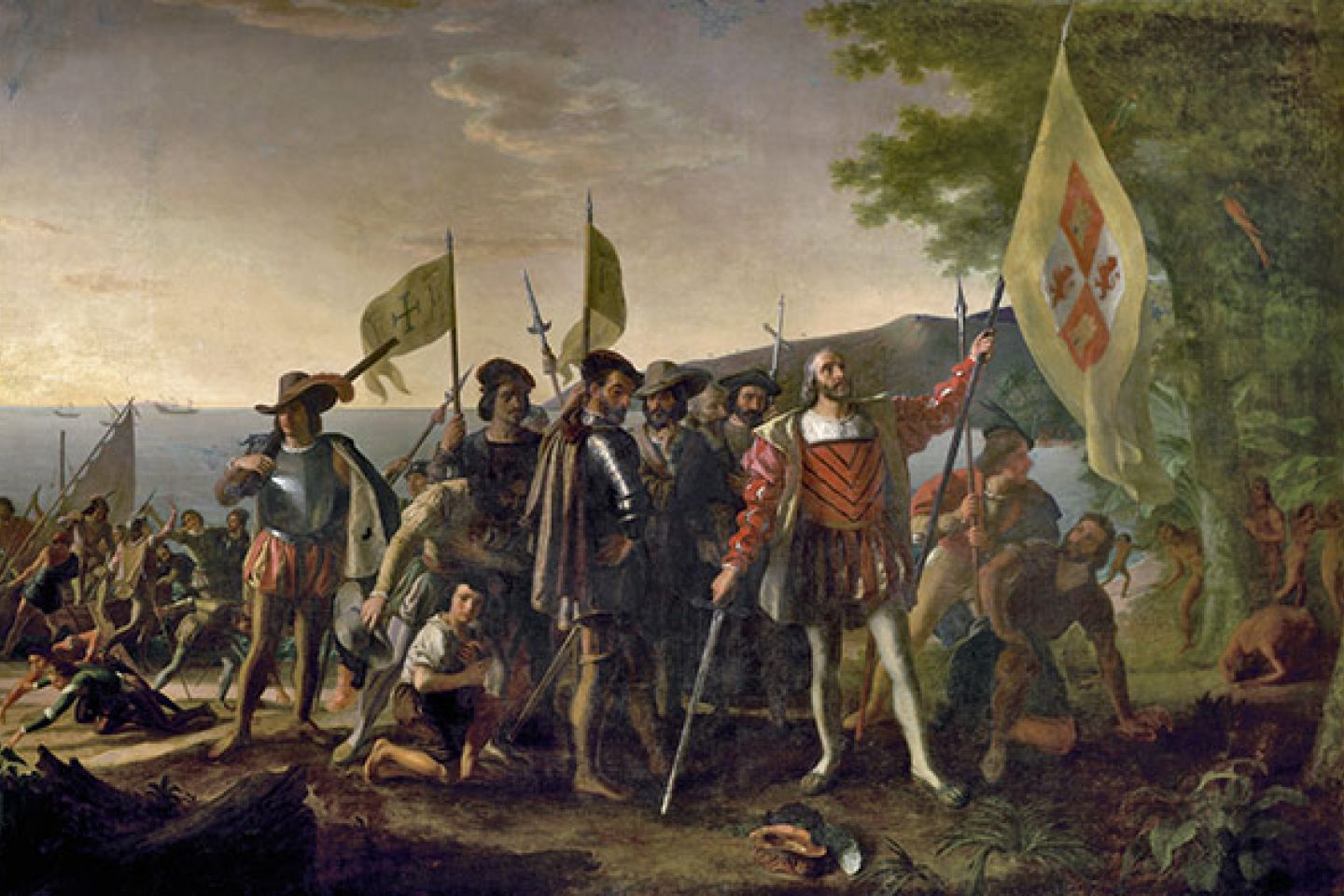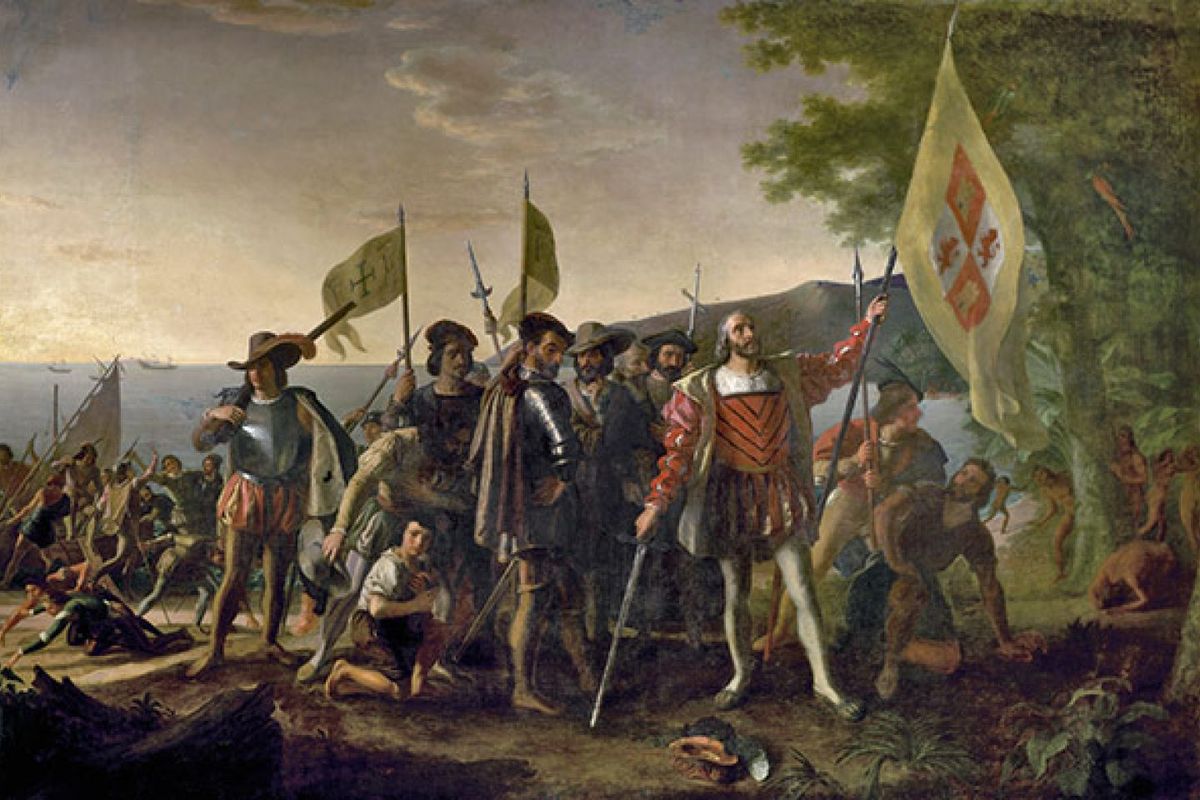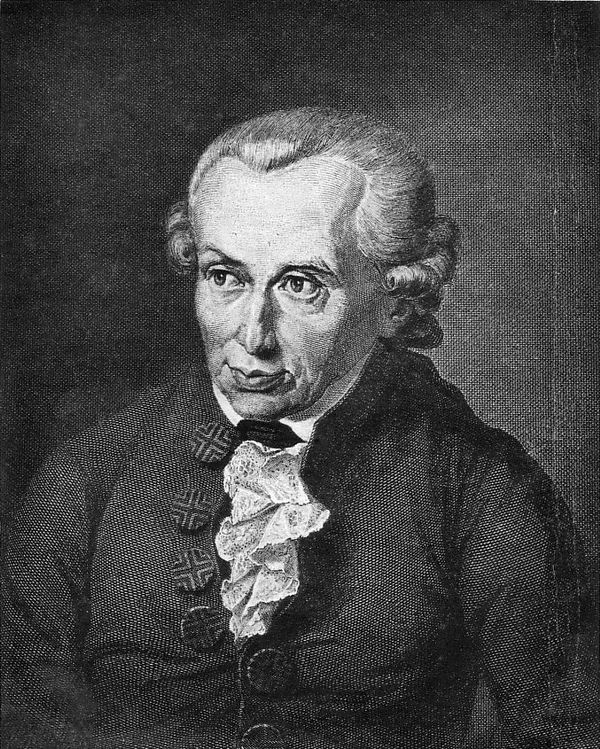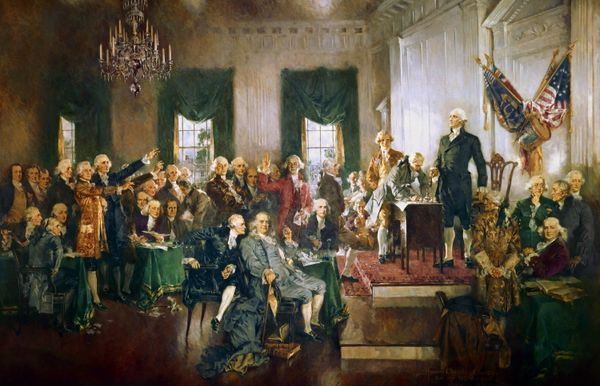Pacta sunt servanda
Volume III: July 8, 2021
Written by Nicholas Rice

Introduction
Hobbes’s Leviathan (1651) and Locke’s Second Treatise Concerning Government (1689) both advance political philosophies grounded in understandings of the ‘state of nature’ as prior and antithetical to the state. This essay will argue that these understandings were not only informed by European colonial practices from the late 15th to early 17th centuries but also helped legitimate those practices from the late 17th century onwards.1 Part I will address the influence of experiences of territorial discovery and contact with colonised peoples occasioned by colonialism on the development of the ‘state of nature’ as a concept in their work.2 Part II will then elaborate the connection between their understandings of the ‘state of nature’ and the promulgation of the colonial project. We will conclude by questioning the integrity of our present politics given the conceptual and historical relationship two of its principal thinkers bear to the colonialism it professes to have moved beyond.
Part I: The Colonial Experience and the ‘State of Nature’
The colonisation of the Americas by the English, French, Dutch, and Spanish had begun in the late 15th century but accelerated rapidly in the early 17th.3 This process of colonisation involved the forceful acquisition of territory from and violent management of relationships with colonised peoples, both of which came to be conceptualised by Hobbes and Locke (Hobbes 85, Locke 24) as an encounter with the ‘state of nature’ (Winderquist & McCall 38). We can therefore understand this concept of a ‘state of nature’ as an empirical and historically contingent phenomenon rather than an a priori rational deduction.4
The influence of the colonial project on Hobbes and Locke in theorising the ‘state of nature’ is apparent in their reworking of precolonial concepts of analogous natural states. (Hoekstra 111). These pre-colonial understandings, as depicted in contemporary literary culture, conceived of the ‘state of nature’ as one of primordial peace and order. Milton’s Paradise Lost (1667) enmeshes pastoral Theocritean language with epic Biblical structures to create a picture of the ‘state of nature’ as one of plenty, wherein “nature multiplies / her fertile growth and by disburd’ning grows / more fruitful” (lines 318-20), and “love and amorous delight” (477) rather than competition characterise the relationships between its inhabitants. This image of originary peace operative in the Miltonian understanding of the ‘state of nature’ is taken up in Behn’s Oroonoko (1688), in which the protagonist’s native community is described as “like our first parents before the Fall” (11). Consistent with Milton’s prelapsarian subjects, they are taken to represent “an absolute idea of the first state of innocence, before man knew how to sin, … [possessed of] a native justice, which knows no fraud” (Behn 11). Although this community of “Coramantien” (13) is politically organised as a monarchy, Behn still speaks of its people as inhabiting a natural state, indicating her employment of a pre-colonial understanding of the ‘state of nature’ as more concerned with the onto-epistemics of individual character than the politics of social structure.5
Against this precolonial understanding of the ‘state of nature’ as one of communal peace, Hobbes and Locke rethink it in colonial terms (Hoekstra 113, Arneil 590-1):
Elements of Hobbes’ description of the natural condition can be traced back to early anthropological accounts of the Americans. Most strikingly, his famous litany of what that condition lacks (‘there is no place for industry, ... no culture of the earth, no navigation ... , no account of time, no arts, no letters, no society’) is an adaptation of a hyperbolic trope, characterizing uncivilized peoples by a negative list, which became conventional in the century after Columbus landed.
[In] John Locke, the state of nature developed in political and Christian thought from Cicero to the seventeenth-century thinkers [was] wholly grafted, without consideration [of its] implications, on to the European notion of America and its natives. … The colonial ambitions of the Dutch and English provided the underlying reason for this use of the American Indian as natural man.
Before tracing this colonial experience in their understandings of the ‘state of nature’, however, we must first clarify their understandings of the concept. Although the political philosophies of Hobbes and Locke are divergent in important ways, their understandings of the ‘state of nature’ are convergent to a similarly important degree.6
For Hobbes the ‘state of nature’ is one in which, given the equality of all people in “faculties of … body … [and] mind” (82) and the absence of a “common power to keep them in awe” (84) and thereby deter them from internecine violence, conflict arises from “competition, … diffidence, and … [the pursuit of] glory” (83). Although counterintuitive given this characterisation of the ‘state of nature’ as “the war of every man against every man” (85), Hobbes believes in the existence of laws of nature that take the form of “precept[s], or general rule[s], found out by reason, by which a man is forbidden to do that which is destructive of his life, or taketh away the means of preserving the same” (86). These laws – such as they are (Hobbes 86-106) – nevertheless do not dispense with the basic violence of a ‘state of nature’ wherein “every man has a right to everything; even to one another’s body” (Hobbes 87). Further, if we pursue the relationship between his understanding of the personation of natural individuals in artificial ones (106-110) and his theory of the state as an artificial corporeality (114), we can also conclude that this Hobbesian ‘state of nature’ applies to natural individual sovereigns and artificial state sovereigns alike.
In Locke ‘the state of nature’ is a “state of perfect freedom… [and] equality” in which sovereign individuals are bound only by “the law of nature” consisting in “great maxims of justice and charity” and “obligation[s] of mutual love” (8). According to this law (Locke 9):
Everyone … is bound [not only] to preserve himself … [but also] to preserve the rest of mankind, and may not, unless it be to do justice to an offender, take away, or impair the life of what tends to the preservation of the life, … liberty, health, limb, or goods of another.
These definitions share two important commonalities: first, that the “Leviathan … [or] Mortal God” (Hobbes 114) that is the state sovereign is taken to be the “proper remedy to the inconveniences of the state of nature” (Locke 12); and second, that these state sovereigns are taken to exist in a ‘state of nature’ regarding one another (Locke 13; Hobbes 106-110, 114).
Having clarified these understandings of the ‘state of nature’, we can begin to see their relationship to the colonial project of the 15th to 17th centuries. Hobbes is explicit in situating his understanding in the experience of colonialism (85):
It may peradventure be thought, there was never such a time, nor condition of war [i.e., state of nature] as this; and I believe it was never generally so, over all the world: but there are many places, where they live so now. For the savage people in many places in America … have no government at all; and live to this day in that brutish manner.
Locke does the same, particularly in his analysis of property. In suggesting that property derives from the application of labour to material with the intention of extracting utility,7 he describes the absence of such property under the ‘state of nature’ in the Americas (Locke 19):
The fruit, or venison, which nourishes the wild Indian, who knows no enclosure and is still a tenant in common, must be his, and so his, i.e., a part of him, that another can no longer have any right to it, before it can do him any good for the support of his life.
Hobbes and Locke are therefore explicit in framing their understandings of the ‘state of nature’ in terms of the experience of colonialism. In both cases, it is seen as representing the “infancy” (Locke 54, 58; Hobbes 84-5) of government.
Part II: The ‘State of Nature’ as Foundational to Future Colonialisms
Though themselves products of colonialism, the understandings of the ‘state of nature’ advanced by Hobbes and Locke can be understood to have mechanised further colonial projects from the late 17th century onwards. Though more concerned with political philosophy than the practical underpinnings of international law of which Grotius wrote in his On the Law of War and Peace (1625) and Mare Liberum (1609) (Arneil passim), Locke shared his ambition to legitimate the European colonial enterprise (Cranston 119)8:
Locke was easily infected with [Lord Anthony] Ashley [Cooper, 1st Earl of Shaftesbury]’s zeal for commercial imperialism, seeing as clearly as his patron saw the possibilities it offered for personal and national enrichment. Their interest was directed chiefly towards North America and the islands of the Caribbean.
While Hobbes may not have stood to gain from the colonial enterprise in the manner of Locke, he appears to share his belief in the importance – or at least teleological inevitability – of banishing of the ‘state of nature’ from the Americas in the pursuit of that “final … design of men” that is the establishment of a state sovereign (111).9 With this shared intellectual project in mind, we can suggest that the influence of Hobbesian and Lockean understandings of the ‘state of nature’ on later colonial logics is threefold: first, concerning the propagation of theories of sovereignty that justified the seizing of land; second, with respect to the legitimation of paternalistic attitudes that allowed for the subjugation of colonial peoples; and third, regarding the sanction of the violent enslavement and extermination of such peoples.
With respect to sovereignty in Hobbes, the relationship between European state sovereigns and colonised individual sovereigns is understood to be typical of the ‘state of nature’ (Heller 25).10 This means that the “rights and consequences of sovereignty, [which] are the same in both [commonwealths of acquisition and institution]” could be used to justify the pursuit by European powers of “dominion acquired by conquest” (Hobbes 134) in the Americas. Indeed, given that the ‘state of nature’ between sovereigns is one of “continual fear, and danger of violent death” (Hobbes 84), this pursuit of acquisitional commonwealth by conquest could even be taken as a kindness in its abolition of such a state.
In a manner distinct from but consistent with Hobbes, Locke justifies the seizing of territory through colonialism with reference to his labour theory of property (Arneil 589). In his view, we cannot appropriate land unless we work it for our benefit; and, conversely, utility cannot properly be extracted from what is not owned (Locke 19):
[All the fruits of the earth] being given for the use of men, there must of necessity be a means to appropriate them some way or other, before they can be of any use, or at all beneficial to any particular man.
Under the protection of a state sovereign, this appropriation of property can exist in private or common form; in the ‘state of nature’, however, competition among innumerable sovereigns means there can exist no such property (Arneil 602).11 In this absence of property – “the vacuis locis” (Locke 65) over which there is no sovereign – land may be taken freely according to the “labour and the conveniences of life” (Locke 22). Locke offers a misleading qualification to this injunction to the seizure of land by suggesting that (Locke 23):
The possessions [one] could make [for one]self, upon the measures we have given, would not be very large, nor, even to this day, prejudice the rest of mankind, or give them reason to complain, or think themselves injured by this man’s encroachment, though the race of man have now spread themselves to all the corners of the world, and do infinitely exceed the small number was at the beginning.
The fallaciousness of this qualification is particularly apparent in the case of colonialism, wherein the piecemeal accrual of control over territory through public and commercial ventures gradually transformed into a generalised expansionism. This was not a lamentable excess in Locke’s view; rather, since the cultivated land of Devonshire is to be preferred to the uncultivated terrain of the Americas (Locke 23), the accelerating appropriation of territory under colonialism is understood to have improved the general stock of mankind (Locke 24):
He who appropriates land to himself by his labour, does not lessen, but increase the common stock of mankind: for the provisions serving to the support of human life, produced by one acre of inclosed or cultivated land, are … ten times more than those which are yielded by an acre of land of an equal richness lying waste in common.
This theory of property as grounded in labour was a deliberate “attempt to undermine the claims [of colonised peoples] to land by creating a new definition of property” that would replace the “right of occupancy” with a “right of agricultural labour” and thus “specifically exclude the American Indian from claiming land” (Arneil 603).
Just as the understanding of the ‘state of nature’ advanced by Hobbes and Locke made palatable the seizing of lands under colonialism, so too did it promulgate narratives justifying the subjugation of the colonised peoples living on those lands. If we follow Hobbes in believing that the ‘state of nature’ renders life “nasty, brutish, and short” (84) and that the condition of awe before a sovereign is thus preferable, then it is possible to make use of his ambivalent distinction between commonwealths of institution and acquisition (134) to justify the subjugation of those in that originary state. Should those living in a ‘state of nature’ be insensible to the impetus of those “passions that incline men to [seek] peace” (86) under the protection of a sovereign, Hobbes’ logic appears to suggest that they should be placed under the protection of a foreign sovereign through conquest in a manner consistent with the colonial paternalism of Kipling’s The White Man’s Burden (1899) (Hobbes 134-5).
In contrast to this, Locke’s understanding of the ‘state of nature’ may seem less immediately amenable to colonial logic since he believes that an unjust war can never give an “aggressor … a right over the conquered” (91). A contextual understanding of his view of just war as aligned with that of Grotius’s De Jure Belli ac Pacis (1625), however, allows us to avoid this false conclusion (Arneil 594):
Under the auspices of ‘punishment’, Grotius provides specific justification for war against native inhabitants of the Americas or East Indies by those who understand and are better followers of the natural law. Thus, Grotius argues that war may be waged against ‘men who are like beasts’, most specifically ‘those who feed on human flesh’. Such an argument, … would be used to justify arbitrary attacks on American Indians. Moreover, should such a native population be conquered, they would have no just cause for retaliatory war based solely on the wish to remove colonial rule. Grotius states: ‘An unjust cause for war is the desire for freedom among a subject people.’
In noting the explicit links between Grotius’ formulation and Locke’s thought – particularly concerning grounds for rebellion against the sovereign (Locke 65) and the belief that those residing in the ‘state of nature’ are bestial (Locke 90) – we detect their shared understanding of colonial conquest as a form of just war. This means that the power gained by European sovereigns in colonial conquest is “perfectly despotical,” giving them “an absolute power over the lives of those, who, by putting themselves in a state of war, have forfeited them” (Locke 93). The term “despotical” is significant here in its distinction from “political,” which describes that power the sovereign has to “preserve the members of [its] society in their lives, liberties, and possessions” (Locke 89). European sovereign power over colonised peoples – gained through just conquest – is thus an “absolute, arbitrary power over to take away [their] life, whenever [it] pleases” (Locke 89-90). The possibility of the colonised subject participating as a citizen in the sovereign government by which they were conquered is thus eliminated (Locke 92-3) and their subjugation ensured.
Finally, as indicated by the connection between despotical power and the right of the sovereign to deprive its subjects of the right to life, the understanding of the ‘state of nature’ advanced in both Hobbes and Locke worked to justify not only the subjugation of colonised peoples and the appropriation of their lands but also their subjection to slavery and exterminatory violence. When we recall that the relationship of European state sovereigns to colonised individual sovereigns is one characteristic of the ‘state of nature’, the possibility for such violence is clear (Arneil 591):
Man under natural law in the state of nature is equivalent to European nations under the very same law, with the same natural rights. The state of nature becomes a metaphor for explaining the relationship between states which have no overarching authority beyond that of God and natural law. War is an assumed condition under these circumstances of colonial competition and is also taken to be natural between the individuals in such a state.
In the context of Hobbes’ legal positivism which takes the just and unjust to derive from the sovereignty of a civil government and not from natural law, this scope of violent possibility widens. Given a ‘state of nature’ unrestrained by notions of justice, practices of enslavement and projects of extermination are permitted by the conclusion that “every [sovereign] has a right to everything; even to one another’s body,” (Hobbes 87). Locke articulates this same logic with explicit reference to slavery under colonialism (Locke 45):
There is another sort of servants, which by a peculiar name we call slaves, who being captives taken in a just war, are by the right of nature subjected to the absolute dominion and arbitrary power of their masters. These men having, as I say, forfeited their lives, and with it their liberties, and lost their estates; and being in the state of slavery, not capable of any property, cannot in that state be considered as any part of civil society.
For both Hobbes and Locke, therefore, the theorising of colonial peoples into a ‘state of nature’ allows for the justification of colonial violence.
Conclusion
Hobbes and Locke were not only influenced by the colonial experience in structuring their political philosophies; moreover, they sought in so doing to legitimate these projects by naturalising the historically-contingent concept of the ‘state of nature’ produced by that experience. With this in mind, questions arise surrounding the integrity of our present politics, which professes to have left behind colonial practices while still enacting the same Hobbesian and Lockean understandings of the ‘state of nature’ that legitimated them.
Bibliography
Articles
Arneil, Barbara. “John Locke, Natural Law, and Colonialism.” History of Political Thought, Winter 1992, pp. 587-603.
Heller, Mark A. “The Use & Abuse of Hobbes: The State of Nature in International Relations.” Polity, Autumn 1980, pp. 21-32.
Maloney, Pat. “Hobbes, Savagery, and International Anarchy.” American Political Science Review, February 2011, pp. 189-204.
Chapter in Edited Book
Hoekstra, Kinch. “Hobbes on the Natural Condition of Mankind.” The Cambridge Companion to Hobbes's Leviathan, edited by Patricia Springborg, Cambridge, Cambridge University Press, 2007, pp. 109–127.
Books
Behn, Aphra. Oroonoko. 1688. London, Penguin Books, 2003.
Cranston, Maurice. John Locke: A Biography. New York, Oxford University Press, 1985.
Hobbes, Thomas. Leviathan. 1651. New York, Oxford University Press, 1996.
Höffe, Otfried. Thomas Hobbes. Albany, SUNY Press, 2015.
Locke, John. Second Treatise of Government. 1690. Cambridge, Hackett Publishing Company, 1980.
Winderquist, Karl, and McCall, Grant S. Prehistoric Myths in Modern Political Philosophy. Edinburgh, Edinburgh University Press, 2016.
Endnotes
- These practices took the form of state-backed exploratory voyages and settlement projects, private commercial enterprises, and religious missions. See Arneil (587):
At the turn of the seventeenth century, European powers were exploring the far reaches of the globe. Each country differed in its approach to the world outside Europe. Dutch and English interests were represented mainly by private companies or groups of aristocrats to whom a proprietary patent would be issued, as manifest by the activities of the East Indies company or the early settlement of America. Other countries, such as Spain or Portugal, colonized America through the auspices of church or state; yet others, such as Sweden, engaged in relatively little colonial expansion outside Europe. Having established a trading relationship or initial settlement in the Americas or East Indies, European monarchs or private companies would often defend jealously their new found wealth. Conflicts inevitably ensued. - This paper uses this term throughout to refer to the indigenous peoples of both the Americas and Western Africa; in this latter case, specifically those enslaved as part of the transatlantic slave trade from the 16th to 19th centuries. This term is used for practical reasons to describe the shared conception of both indigenous and enslaved peoples in the colonial mind as participating in the ‘state of nature’.
- The Spanish established the first permanent colony in the Americas in Santo Domingo in 1496; this was followed by their conquest of Cuba in 1515 and Mexico in 1521. After the English claiming of Newfoundland in 1583, they turned their attention to the establishment of colonies further south: Roanoke in 1585, Jamestown in 1607, Bermuda in 1612, Plymouth in 1620, and Massachusetts Bay in 1630. The Dutch had also established New Amsterdam in 1625. The French would found Montreal in 1642 and Louisiana in 1699.
- In suggesting this, I disagree with Höffe, who argues for the purely rational status of Hobbes’ notion of the ‘state of nature’ as divorced from empirical historical observation. See Höffe (123):
From the methodological point of view, this notion [of the state of nature] does not imply or refer to any actual historical or pre-historical time. It is a rational construction, a philosophical thought experiment that explores the internal dynamics of a hypothetical coexistence of sensuous beings who possess reason and language, but a coexistence not subject to any rules or norms. - It may, of course, be argued that these texts do not represent a ‘state of nature’ intelligible to Hobbes and Locke as such; however, this observation only gives credence to the observation that they were involved in reworking a precolonial concept. Prior to the colonial experience, ideas of the state of nature enmeshed narratives of Biblical creation, imagined unities of man, hypothesises connections between man and the natural world, and exotic narratives of places distant from and unknown to European peoples. Hobbes and Locke reformulated this understanding into a principle of political philosophy deployed to justify colonial projects.
- Locke represents an anti-Hobbesian vein of liberal thought (Hobbes xlii) insofar as he provides an avenue whereby defection from a legitimate but deficient sovereign is justified (Locke 64):
To submit to the government, begins and ends with the enjoyment; so that whenever the owner who has given nothing such a tacit consent to the government, will, by donation, sale, or otherwise, quit the said possession, he is at liberty to go and incorporate himself into any other common-wealth; or to agree with others to begin a new one, in vacuis locis, in any part of the world, they can find free and unpossessed. - As Locke (19) explains: “[All the fruits of the earth] being given for the use of men, there must of necessity be a means to appropriate them some way or other, before they can be of any use, or at all beneficial to any particular man.”
- There is significant biographical evidence to support this conclusion that Locke was personally invested in the project of colonialism. See Arneil (600):
Evidence of Locke’s deep interest in America and the questions posed by its colonization is provided by the collection of travel books in his private library and the years spent, under the Earl of Shaftesbury’s patronage, as secretary to the Lord Proprietors of Carolina and Secretary to the Council of Trade and Plantations during the 1660s and 1670s. … Listed … [in Locke’s library] under the category of voyages and travels are one hundred and ninety five titles, most describing trips to the Americas. Locke’s colonial activities, before the Two Treatises were composed, include secretary to the Lords Proprietors of Carolina (1668-75) and secretary to the Council of Trade and Plantations (1672-6). In both of these capacities Locke played an important role in the formulation of colonial policy. - We may look to substantiate this claim at the frontispiece of his De Cive (1642). Moloney describes how, in this frontispiece, America is personified as a “man-eating Amazon,” intended to represent “New World anarchy” (194); Europe, by contrast, is represented by Imperium. See Moloney 192.
- It bears noting that Heller, although noting this as a common extrapolation of Hobbes’ theory of the ‘state of nature’, disagrees with it on the basis that there does not exist among state sovereigns that equality which exists between individuals (Heller 25-32).
- This makes his later qualification on the right of conquest – that the conqueror “has not thereby a right and title to … [the] possessions [of the conquered]” (Locke 95) – all the more disingenuous when applied to the historical circumstance of colonialism. Since colonised peoples in the ‘state of nature’ could not be understood to own anything in the first instance, it is thus open to colonising powers to exert control over both colonised peoples and their possessions.




